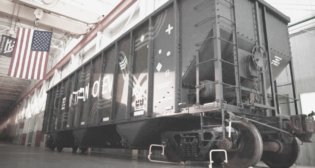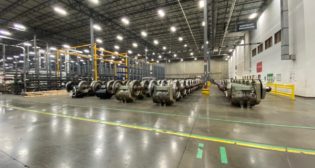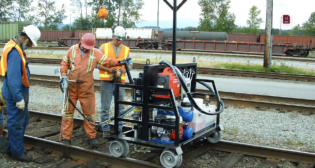
WMATA to Fix All 7000-Series Car Wheels. Price tag: $55MM
Written by Marybeth Luczak, Executive Editor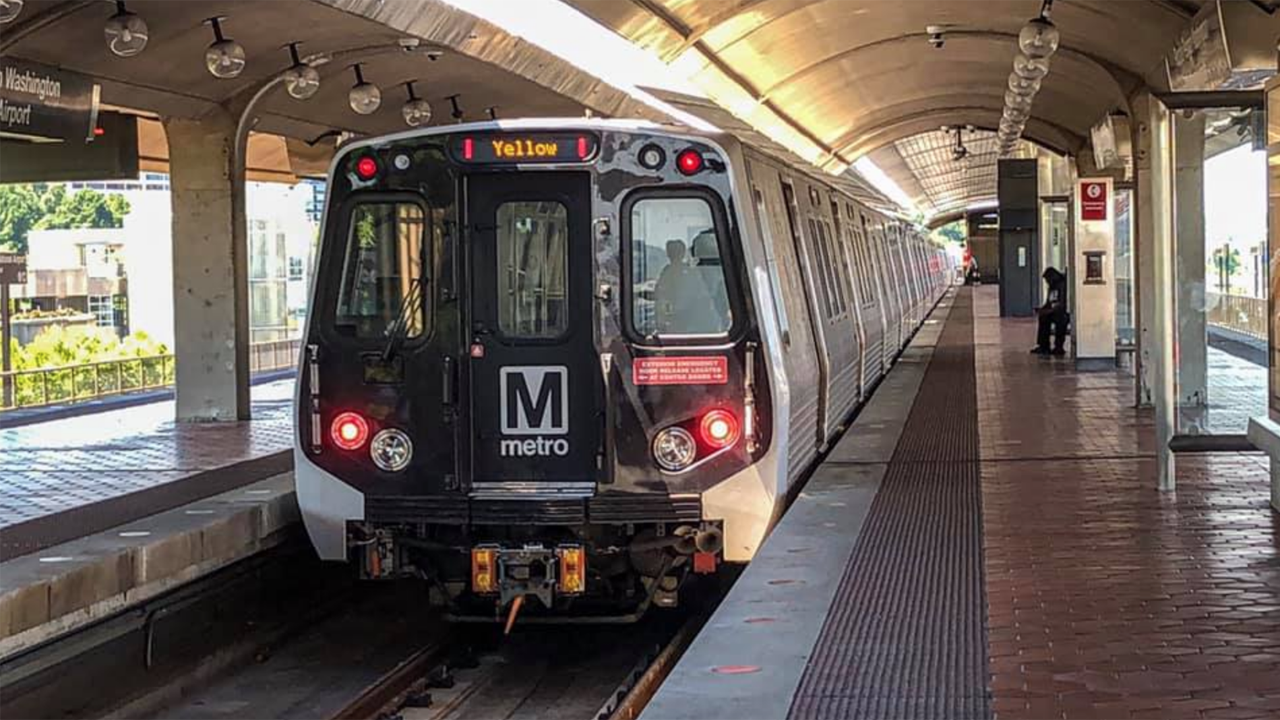
WMATA 7000-Series Rapid Transit Cars: Courtesy Wikipedia
The Washington Metropolitan Area Transit Authority (WMATA) on Feb. 28 reported that its plan to change the way it presses wheels on the 7000-series rapid transit cars is under development, based on technical data issued the same day by the National Transportation Safety Board (NTSB). The safety move could cost approximately $55 million and take up to three years to complete, the Authority said.
The NTSB on Feb. 28 released the data as part of the public docket* for its ongoing investigation into the Oct. 12, 2021 derailment of a WMATA train in Arlington, Va. One wheelset on car 7200, the fourth of eight on train 407, derailed (see map below). Shortly thereafter, the wheelset was found to be out of compliance with 7000-series cars’ specifications, leading WMATA to sideline all 748 of its cars in the series—built by Kawasaki Rail and representing nearly 60% of its fleet.
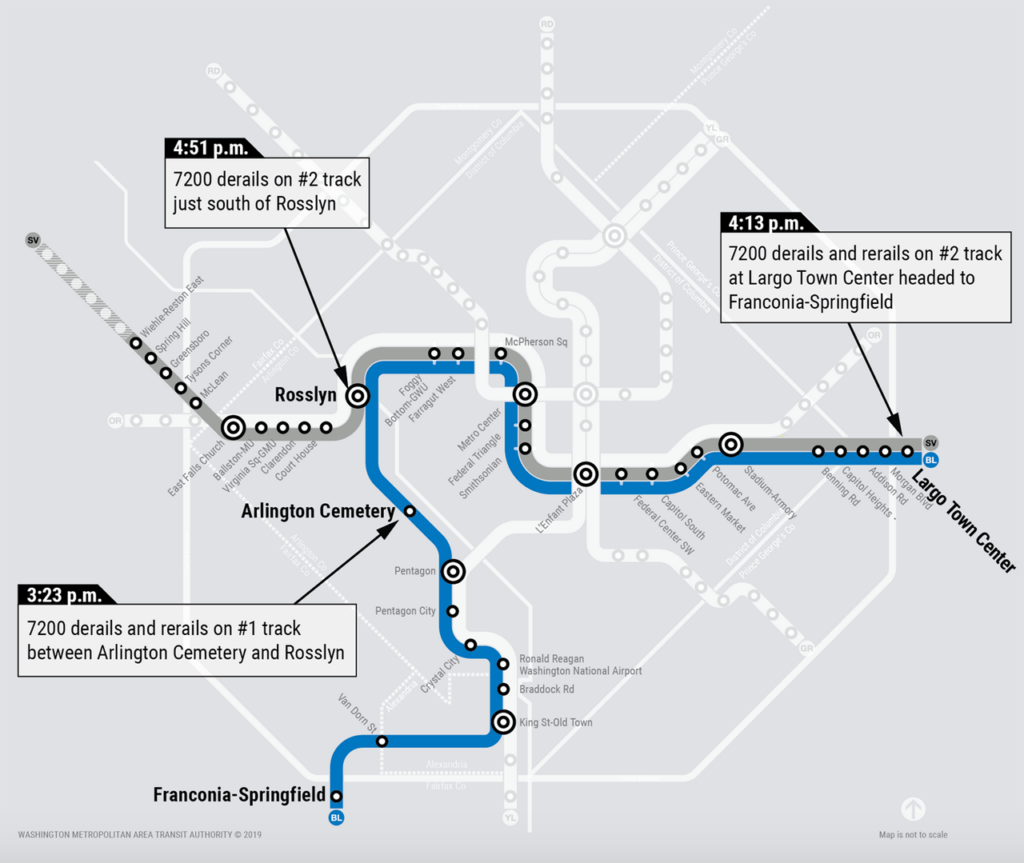

NTSB Docket Release Provides Road Map to 7000-Series Fleet Restoration
“We appreciate the NTSB making the technical reports available so that we can develop our plan to begin repressing wheels on these trains at a higher standard, including the fit onto the axles,” WMATA Chief Operations Officer Brian Dwyer said. “We are preparing the technical documents and training plan, while we collaboratively advance the next version of our [7000-series cars’] return to service plan for approval by the Washington Metrorail Safety Commission.”
WMATA has been gradually reinstating its 7000-series cars, by following Washington Metrorail Safety Commission-approved inspection protocols.
WMATA said the NTSB’s investigation docket release makes it possible for the Authority “to transparently work towards addressing the cause of the wheel movement” with a revised return to service plan. While a cause of the wheel movement has not been “formally announced” by the NTSB, among the 1,400 pages of factual information released in the public docket was a report from experts at engineering firm Hatch-LTK, “which identified a technical issue—microslip due to reduction in contact pressure,” according to WMATA. The Authority reported that its “internal and external engineering experts agree that an increase to the fit and press tonnage used to mount rail wheels onto axles is required for the 7Ks [7000-series cars]. As a preliminary estimate, it will take up to 36 months at a cost of approximately $55 million to repress all 7K wheels.” The 748 railcars comprise 5,984 wheels on 2992 axles, the Authority said.
“We thank our customers for their patience and want them to know that the good news is we will be able to fix about 20 cars a month to safely build up more trains and restore the safe, frequent and reliable service the region needs,” Dwyer said.
WMATA reported that it will continue its “rigorous inspections of wheels with measurements for every 7000-series railcar [in service] until its wheels are reassembled at the new, higher standard.”
“Process changes must be safe and deliberate,” WMATA Chief of Safety and Readiness Theresa Impastato said. “We will take the time needed to get this right because every single railcar must undergo a rigorous process to be ready to serve our customers and support our employees.”
* The NTSB docket includes reports on operations, mechanical, track and engineering, signal and train control, vehicle event recorders, materials lab, and human performance. It also includes interview transcripts, photographs and other investigative materials. “The docket contains only factual information collected by NTSB investigators; it does not provide the final report or a probable cause” on the WMATA derailment, according to the NTSB. A final report will be issued at a later date and will include “analysis, findings, recommendations, and probable cause determinations related to the derailment,” the NTSB said.
